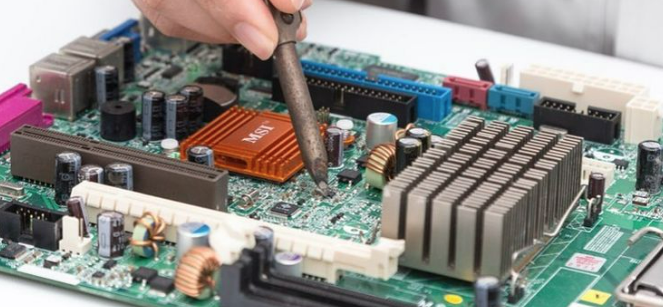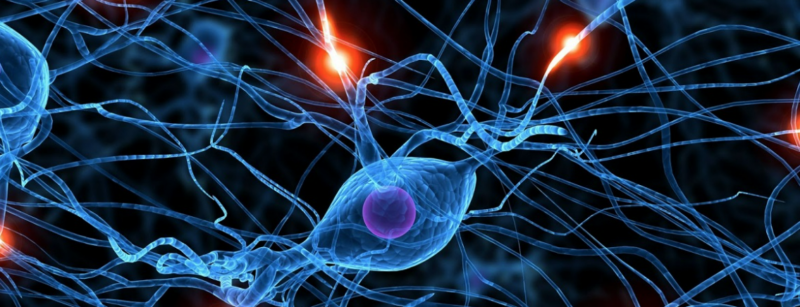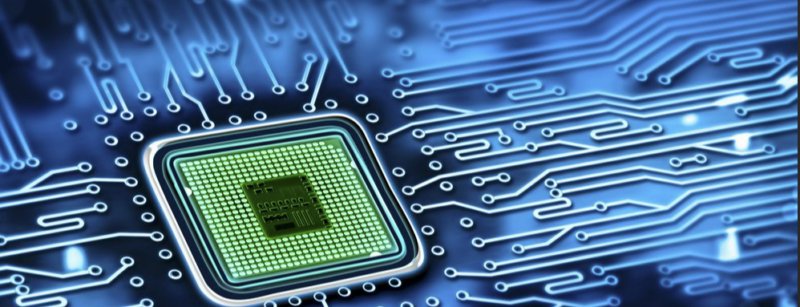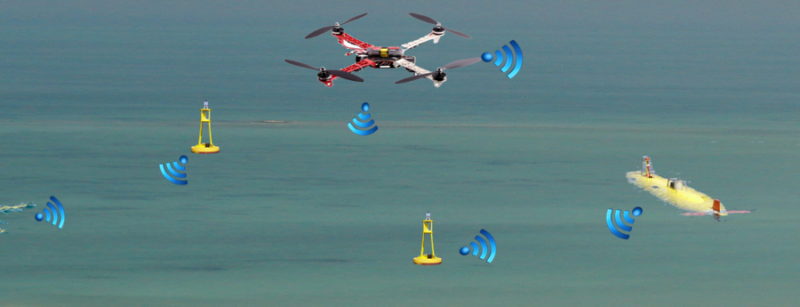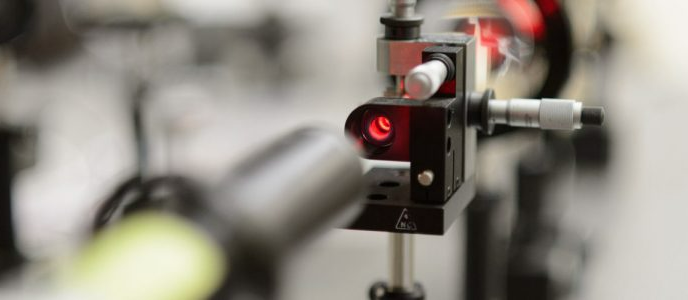- Homepage
- >
- Faculty, Staff & Students
- >
- Research Labs
Research Labs
Faculty: A.Bazzi
This laboratory performs research on power electronics applications in electric motor drives, renewable energy systems (especially solar photovoltaics), and micro-grids.
Cyber-Physical Intelligence for Smart Grid Resiliency Lab
Faculty: J.Zhao
Cyber-Physical Intelligence for Smart Grid Resiliency Lab (CISGRL) is a part of the Eversource Energy Center and the Department of Electrical and Computer Engineering. Our missions are to develop the next generation of cyber-physical intelligence for grid digitalization, electrification, and decarbonization via collaborations with partner universities, the power industry, and national labs. Our research interests include cyber-physical power system modeling, monitoring, renewable energy integration, uncertainty quantification, learning, dynamics, stability control, and cyber security with DERs. CISGRL is currently funded by a multitude of projects from the National Science Foundation, the Department of Energy, National Laboratories, and Eversource Energy.
Electrical Insulation Research Center
Faculty: Y. Cao
EIRC adds value to the electrical industry through its ability to conduct, originate, and/or manage projects in a manner which is meaningful to both academics and the industry. EIRC combines the interdisciplinary skills of faculty members supported by staff research assistants, postdoctoral fellows, and graduate students. The Center undertakes investigation of limited problems as well as long-range research. Recent research has been concentrated in the areas of: High field study, Rational design of advanced polymeric capacitor films, Space charge & HVDC, Partial discharge detection, Dielectric measurements such as characterization of nonlinear grading materials, Nonlinear finite element analysis with coupled electric and thermal fields, Plasma surface interaction, etc.
Sustainable and Renewable Power Laboratory
Faculty: Zongjie Wang
Research opportunities in theoretical and numerical analysis in transmission, distribution, and coordinated transmission & distribution systems. Students should have good skills in codings at Matlab or Python with optimization algorithms (e.g., Gurobi).
Smart Power Electronics and Energy Conversion (SPEC) Lab
Faculty: SY. Park
This group researches power, electronics and energy conversion, including smart power and electronics and energy conversion with applications for real world applications.
Physiological Acoustics Laboratory
Faculty: M.A.Escabi
The functions of the laboratory deal with auditory signal processing and human perception of speech. The laboratory is equipped to record brain activity in the mammalian brain in response to acoustic stimuli. Brain regions of interest include the inferior colliculus, auditory thalamus and cortex. Equipment is also available for human psycho-acoustics. A number of approaches are employed including information theoretic, systems identification, and modeling techniques.
System Optimization Laboratory
Faculty: K.R. Pattipati
This laboratory is dedicated to research on systems theory and optimization techniques to solve industrial and national defense problems. Current research is focused on model-based and data-driven fault diagnosis & prognosis, graphical models, combinatorial optimization problems in automated testing, adaptive organizations for dynamic and uncertain environments, decision support systems for information-based maintenance, and fast near-optimal algorithms for multi-user detection in wireless communications. The laboratory is equipped with more than 20 high-speed computers, advanced software packages and enjoys a close relationship with local industries.
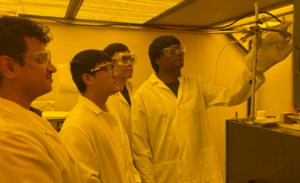
Students work with an oxidation diffusion furnace in Dr. Faquir Jain’s lab.
L-R is Abdulmajeed Almalki, Jet Yang, Thong Cu, and Richard Seecharran.
Faculty: S. Zuo
Our lab designs, analyzes, controls, and verifies networked autonomous systems. Our research lies at the intersection of control theory, graph theory, game theory, cyber-physical systems, and machine learning, with recent interests in the design of safe and resilient networked multi-agent systems.
Laboratory of Intelligent Networks and Knowledge-Perception Systems (LINKS)
Faculty: S. Gupta
This laboratory is focused on areas of cyber-physical systems, networked-control systems, robotics and machine learning.
Robotics and Controls Laboratory
Faculty: A. Dani
Robotics and Controls group in the Electrical and Computer Engineering department at UCONN works on various estimation and control problems for applications in robotics and other engineering domains.
Storage and Network Systems Laboratory
Faculty: J.A.Chandy
The SNSL laboratory engages in a wide range of experimental and theoretical research. Projects span from distributed file systems, object-based storage systems, fault-tolerant systems, optimization algorithms, active storage networks to VLSI designs, FPGA architectures.
Faculty: H. Silva and A. Gokirmak
This laboratory focuses on electron transport in small scale devices (MOSFETS, microwires) and thermoelectricity.
Micro/Optoelectronics Research Laboratory
Faculty: F.C. Jain
This laboratory is equipped with CVD reactors for Ge and Si growth; MOCVD reactors for ZnS, ZnMgSSe, ZnZnCdSe growth (including a quantum dot growth setup) and PL and X-Ray setups for characterization; a photolithographic clean room to process lasers, transistors and integrated circuits; measurement setups to characterize lasers, modulators, and filters; and dedicated workstations for computer-aided design (Cadence) and simulation. Current research is focused on 1.55 micron MQW optical modulators, tunable lasers, SiGe FETs, terahertz MODFETs and quantum interference transistors, quantum dot-based nanophosphors and lasers.
Optical Image Sensing, Communication, and Visualization Laboratory
Faculty: B.Javidi
This laboratory is dedicated to research and education on information systems, signal and image processing, neural computing, real-time image recognition, information security, data encryption, optical signal processing systems, three dimensional display, three-dimensional signal processing, ultrafast communication systems, ultrafast signal processing and computing, and optical data storage. The activities include both algorithms development, system design, and hardware implementation. The facilities include advanced computers, PCs, MACs, SUN workstations, extensive software packages, state of the art spatial light modulators, high definition display devices, high definition detector arrays, lasers, stable tables, optical benches, optical accessories, and holographic systems.
In addition to the ECE labs, check out the following video which outlines the College of Engineering Innovation Shop!

